
Every website on the Internet has its own unique address that allows users to quickly find the resource among billions of web pages. This address is called a domain name. A domain name plays a key role in creating a brand, promoting an online project, and ensuring convenient access to the site. In this article, we will take a detailed look at what a website domain is, how it works, what types of domains there are, and how to choose and register your own address on the Internet.
A domain name is a unique and user-friendly way to access your website. Simply put, a domain is the address of your resource that people enter in their browser. Without a domain name, you would have to use complex numerical IP addresses, such as 192.168.1.1, which are difficult to remember. A domain name makes addresses understandable and easy to remember. In addition, a website’s domain shapes its image and influences its brand, so choosing the right domain name is strategically important.
To understand how a domain name works, you need to know about the Domain Name System (DNS). When a user enters a website address in a browser, DNS servers convert the domain name into the IP address of the server where the website is hosted. This allows the browser to find the correct server and load the web page. In other words, a domain name is a kind of “alias” for numerical IP addresses, which simplifies navigation for people.
For example, when you enter hostpark.ua, DNS translates this address into the corresponding IP address of the server. Without DNS, you would have to remember complex combinations of numbers, which would be very inconvenient for users and website owners.
A domain name has the following characteristics: it consists of several levels separated by dots. The main levels are:
A full domain name is a combination of all levels and serves as a unique address for your resource on the network.
Many beginners confuse domain names and hosting, but these are two completely different components of any web resource. A domain is the website address that users enter in their browser to access your resource. It is a kind of “house number” on the global Internet. Hosting is a server space where all your website files are physically stored: HTML pages, databases, images, videos, and other resources. To continue the analogy with the real world, a domain is a house address, and hosting is the house itself with rooms, furniture, and all the infrastructure that provides comfortable living.
It is important to understand that domain names and hosting are interrelated but serve different purposes. Without a domain name, it would be difficult for users to find a website, as they would have to enter the server’s numerical IP address. On the other hand, without hosting, the domain address would be empty—there would be no files or web pages to access.
In addition, domains and hosting are managed by different services. Domains are registered through a domain name registrar, which ensures their uniqueness and the rights of the owner. Hosting is provided by a hosting provider that maintains servers, backups, security, and website loading speed. By choosing reliable hosting, you ensure stable website performance, while the right choice of domain name affects audience recognition and trust.
For a web resource to function properly, both elements are essential: a domain address for navigation and hosting for content placement. Together, they form the basis of your online presence, making your website accessible, convenient, and professional.
A domain name is not just a website address; it also reflects its purpose, field of activity, and geographical affiliation. There are several types of domains, and knowing their classification helps you choose the best address for your project. Choosing the right domain affects website recognition, user trust, and the effectiveness of online promotion. In this section, we will look at the main categories of domain names and explain how they are used in practice.
Generic domains are top-level domains (TLDs) that are not tied to a specific country or region. They are used worldwide and are suitable for any type of website: business projects, blogs, non-profit organizations, online stores, and other resources. The most popular generic domains are .com, .net, and .org, but today there are hundreds of other specialized generic domains, such as .info, .biz, and .online, which help your website stand out from the competition.
The use of generic domains has several advantages. First, they are easy to remember and are associated with the international level of the project. Second, such domains are well received by search engines and can have a positive impact on SEO, especially if the chosen domain contains a keyword related to the subject of the site. Third, generic domains provide flexibility in project development—a website with .com or .net can successfully operate in both local and global markets.
Today, generic domains also include new “creative” options, such as .shop for online stores or .tech for technology startups. They allow users to immediately understand what the site is about and highlight its specialization. Thus, the right choice of a generic domain can not only ensure recognition but also become an important marketing tool.
National domains are top-level domains that reflect the geographical affiliation of a website to a specific country or territory. They are also known as ccTLDs (country code Top-Level Domains). Examples include .ua for Ukraine, .fr for France, .de for Germany, .jp for Japan, and many others. The use of such domains allows you to immediately determine the regional focus of the site and increases user confidence in a particular country.
National domains have several key advantages. First, they have a positive impact on local SEO: search engines rank websites with a country-specific domain higher in relevant regional search results. Second, such domains create a sense of proximity to the user and trust, especially for commercial websites, stores, or services targeting the local market.
Country domain names are often used as a separate brand. For example, companies may add a regional code to the main domain or use it for specialized sub-sites. For example, an international brand’s website may have example.com for a global audience and example.ua for Ukrainian users.
Choosing a national domain should be considered if the main audience of the site is located in a specific country or if you want to increase the trust of local users. This is especially important for business projects, online stores, and sites offering local services.
Specialized domains are top-level domains created for a specific topic, professional field, or specific activity. They not only give the site a unique address, but also immediately let users know what the resource is about. For example, the .tech domain is suitable for technology startups, .shop for online stores, .blog for personal or corporate blogs, and .design for design studios and portfolios.
Such domains help emphasize the specialization of the site and make its address more memorable. They are especially useful for new businesses, startups, and projects that want to stand out from the competition. Using a specialized domain can also have a positive impact on your marketing strategy, as the website address immediately reflects its theme and target audience.
Today, there are hundreds of specialized domains, including .photo for photo portfolios, .travel for travel websites, .music for music resources, and .health for medical projects. Choosing the right specialized domain allows you to create a professional image for your website and emphasize its uniqueness.
When choosing a specialized domain, it is important to consider not only the subject matter of the resource, but also user-friendliness and ease of memorization. This will help make the site more accessible, increase brand awareness, and ensure effective communication with the audience.
Choosing a domain name is one of the most important steps in creating a website, as it directly affects brand recognition, user convenience, and the effectiveness of online promotion. The right choice of domain helps make your website professional and memorable. Let’s take a look at detailed recommendations for choosing a domain name.
By considering these aspects, you will be able to choose a domain name that is not only easy to remember but also contributes to the successful development of your project on the Internet. The right choice of domain creates a positive first impression, increases user trust, and helps to effectively promote your website online.
Domain registration is a key step in creating any website. To make your project available on the Internet, you need to obtain a unique domain address through a domain name registrar. A registrar is a company that provides services for registering, managing, and renewing domain names, guaranteeing their uniqueness and legal protection. The registration process consists of several important steps.
You can register a domain directly through HostPark https://hostpark.ua/en/domains/. The resource allows you to quickly check the availability of a name, choose from dozens of domain zones, and immediately complete the registration online. For convenience, renewal is available in a few clicks, and there are tools for managing DNS, so after purchase, you will immediately receive full control over your address.
Proper domain registration guarantees complete control over the website address and allows you to develop your web project without the risk of losing the name. This is a fundamental component of a successful online business or any other web resource, as the domain address becomes the basis of your brand’s digital identity.
A domain name is the foundation of any web resource. It determines the website address, simplifies user access, and shapes the brand. It is important to choose domain names correctly, taking into account their structure, types, and top-level domains. Registration through a trusted domain name registrar ensures the reliability and legal purity of your address. Knowledge of these aspects will help you create a professional website with an easy-to-remember domain address, which will increase user trust and contribute to the development of your online project.
Response
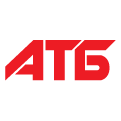

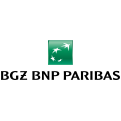

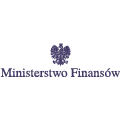
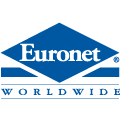


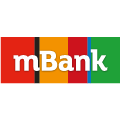



Ask us and our managers will contact you as soon as possible.